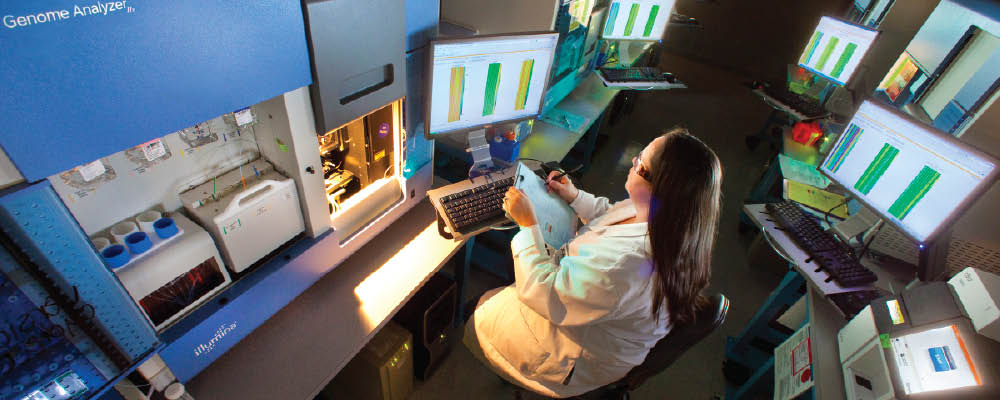Joint Genome Institute (JGI)

Description
The Joint Genome Institute (JGI), at Lawrence Berkeley National Laboratory, is a user facility that advances genomics research by providing the research community with access to the latest generation of genome sequencing and analysis capabilities. Originally created in 1997 to carry out high throughput DNA sequencing in support of the Department’s role in the Human Genome Project, the JGI is now operated by Lawrence Berkeley National Laboratory as a DOE scientific user facility (since 2004) in support of the Department’s basic energy and environmental research needs. Located in Walnut Creek, California, the JGI employs approximately 250 scientists and technicians sequencing and analyzing more than 200 terabases (200,000 billion bases) of DNA per year. JGI is a world leader in the production of complex plant, microbial and fungal genomes, and metagenomic sequencing for Departmental-relevant research. JGI is a major partner for the four DOE Bioenergy Research Centers and engages the larger genomic science research community via the Community Sequencing Program (CSP). Sequencing projects within the CSP are chosen based on scientific merit, as judged through independent peer review process and relevance to Departmental research. Current sequencing efforts focus on plants and microbes relevant to bioenergy, carbon cycling, and biogeochemical processes in key environments.
Additionally, the JGI is developing new strategies for interpreting complex genomes through new high throughput functional assays, DNA writing and manipulation techniques and, genome analysis tools in association with the DOE Systems Biology Knowledgebase (KBase). These new capabilities are part of JGI’s latest strategic plan to provide users with additional capabilities supporting biosystems design efforts for biofuels and environmental process research. The JGI also performs metagenome (genomes from multiple organisms) sequencing and analysis from environmental samples and is developing single cell sequencing techniques on hard-to-culture cells from environments relevant to the Department’s missions.
Science
High-throughput DNA sequencing underpins modern systems biology research, providing fundamental biological data on the genetic potential encoded within the genomes of organisms and groups of organisms. Understanding the DNA code—the genome—of plants and microbes is the starting point to understanding any biological system and drives scientific discoveries that are applicable to the Department’s missions. By understanding shared features of multiple genomes, scientists can analyze, identify, understand, and manipulate processes for beneficial purposes. Current areas of emphases include the foundational genomic science underpinning lignocellulosic biofuel development and gaining a predictive understanding of the biological cycling of carbon and nutrients in the environment.

